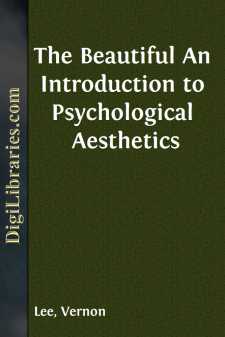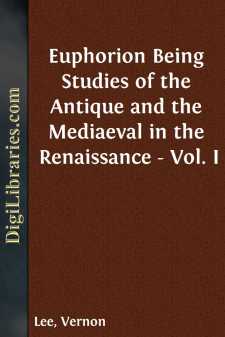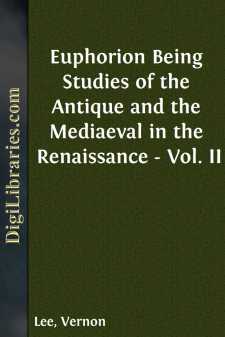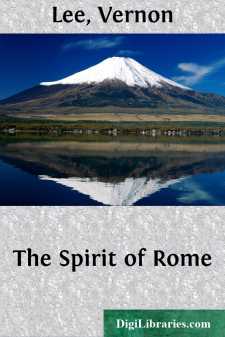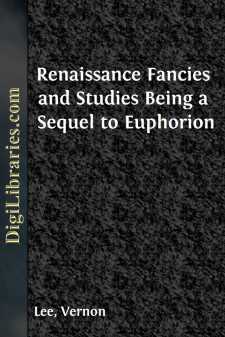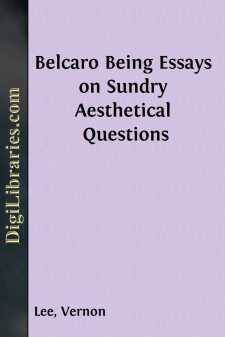Categories
- Antiques & Collectibles 13
- Architecture 36
- Art 48
- Bibles 22
- Biography & Autobiography 813
- Body, Mind & Spirit 142
- Business & Economics 28
- Children's Books 17
- Children's Fiction 14
- Computers 4
- Cooking 94
- Crafts & Hobbies 4
- Drama 346
- Education 46
- Family & Relationships 57
- Fiction 11829
- Games 19
- Gardening 17
- Health & Fitness 34
- History 1377
- House & Home 1
- Humor 147
- Juvenile Fiction 1873
- Juvenile Nonfiction 202
- Language Arts & Disciplines 88
- Law 16
- Literary Collections 686
- Literary Criticism 179
- Mathematics 13
- Medical 41
- Music 40
- Nature 179
- Non-Classifiable 1768
- Performing Arts 7
- Periodicals 1453
- Philosophy 64
- Photography 2
- Poetry 896
- Political Science 203
- Psychology 42
- Reference 154
- Religion 513
- Science 126
- Self-Help 84
- Social Science 81
- Sports & Recreation 34
- Study Aids 3
- Technology & Engineering 59
- Transportation 23
- Travel 463
- True Crime 29
Laurus Nobilis Chapters on Art and Life
by: Vernon Lee
Categories:
Description:
Excerpt
THE USE OF BEAUTY.
I.
One afternoon, in Rome, on the way back from the Aventine, the road-mender climbed onto the tram as it trotted slowly along, and fastened to its front, alongside of the place of the driver, a bough of budding bay.
Might one not search long for a better symbol of what we may all do by our life? Bleakness, wind, squalid streets, a car full of heterogeneous people, some very dull, most very common; a laborious jog-trot all the way. But to redeem it all with the pleasantness of beauty and the charm of significance, this laurel branch.
II.
Our language does not possess any single word wherewith to sum up the various categories of things (made by nature or made by man, intended solely for the purpose subserving by mere coincidence) which minister to our organic and many-sided æsthetic instincts: the things affecting us in that absolutely special, unmistakable, and hitherto mysterious manner expressed in our finding them beautiful. It is of the part which such things—whether actually present or merely shadowed in our mind—can play in our life; and of the influence of the instinct for beauty on the other instincts making up our nature, that I would treat in these pages. And for this reason I have been glad to accept from the hands of chance, and of that road-mender of the tram-way, the bay laurel as a symbol of what we have no word to express: the aggregate of all art, all poetry, and particularly of all poetic and artistic vision and emotion.
For the Bay Laurel—Laurus Nobilis of botanists—happens to be not merely the evergreen, unfading plant into which Apollo metamorphosed, while pursuing, the maiden whom he loved, even as the poet, the artist turns into immortal shapes his own quite personal and transient moods, or as the fairest realities, nobly sought, are transformed, made evergreen and restoratively fragrant for all time in our memory and fancy. It is a plant of noblest utility, averting, as the ancients thought, lightning from the dwellings it surrounded, even as disinterested love for beauty averts from our minds the dangers which fall on the vain and the covetous; and curing many aches and fevers, even as the contemplation of beauty refreshes and invigorates our spirit. Indeed, we seem to be reading a description no longer of the virtues of the bay laurel, but of the virtues of all beautiful sights and sounds, of all beautiful thoughts and emotions, in reading the following quaint and charming words of an old herbal:—
"The bay leaves are of as necessary use as any other in garden or orchard, for they serve both for pleasure and profit, both for ornament and use, both for honest civil uses and for physic; yea, both for the sick and for the sound, both for the living and for the dead. The bay serveth to adorn the house of God as well as of man, to procure warmth, comfort, and strength to the limbs of men and women;… to season vessels wherein are preserved our meats as well as our drinks; to crown or encircle as a garland the heads of the living, and to stick and deck forth the bodies of the dead; so that, from the cradle to the grave we have still use of it, we have still need of it."



